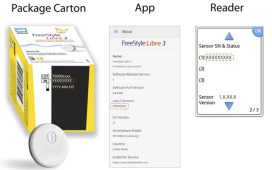Significantly stronger neural responses in superior parietal cortices during memory encoding in T1DM
MONDAY, March 19, 2018 (HealthDay News) — Young adults with type 1 diabetes have altered neural responses during working memory processing, according to a study published online March 12 in Diabetes.
Christine M. Embury, from the University of Nebraska Medical Center in Omaha, and colleagues examined the correlation between diabetes and cognitive impairment in a cohort of young adults with and without type 1 diabetes who were virtually free of comorbidities that have been independently linked to cognitive deficits (such as obesity and hypertension). Participants completed a verbal working memory task during magnetoencephalographic brain imaging.
The researchers found that, compared with controls, patients had significantly stronger neural responses in the superior parietal cortices during memory encoding, while during maintenance, activity was significantly weaker in parietal-occipital regions. There were significant correlations for disease duration and glycemic control with neural responses in various brain regions.
“Young healthy adults with type 1 diabetes already have aberrant neural processing relative to their nondiabetic peers, employing compensatory responses to perform the task, and glucose management and duration may play a central role,” the authors write.
One author disclosed financial ties to the pharmaceutical industry.
Abstract/Full Text (subscription or payment may be required)
Copyright © 2018 HealthDay. All rights reserved.








